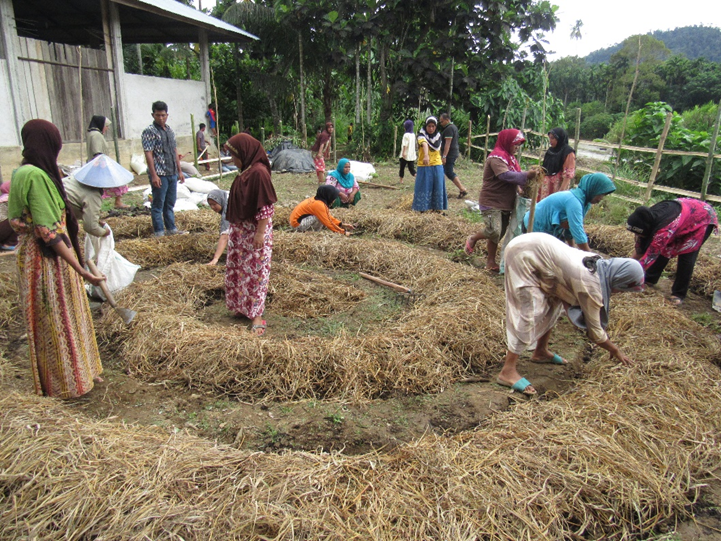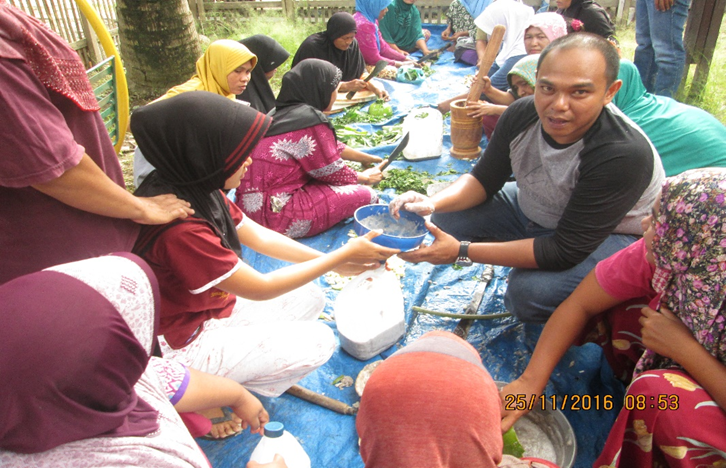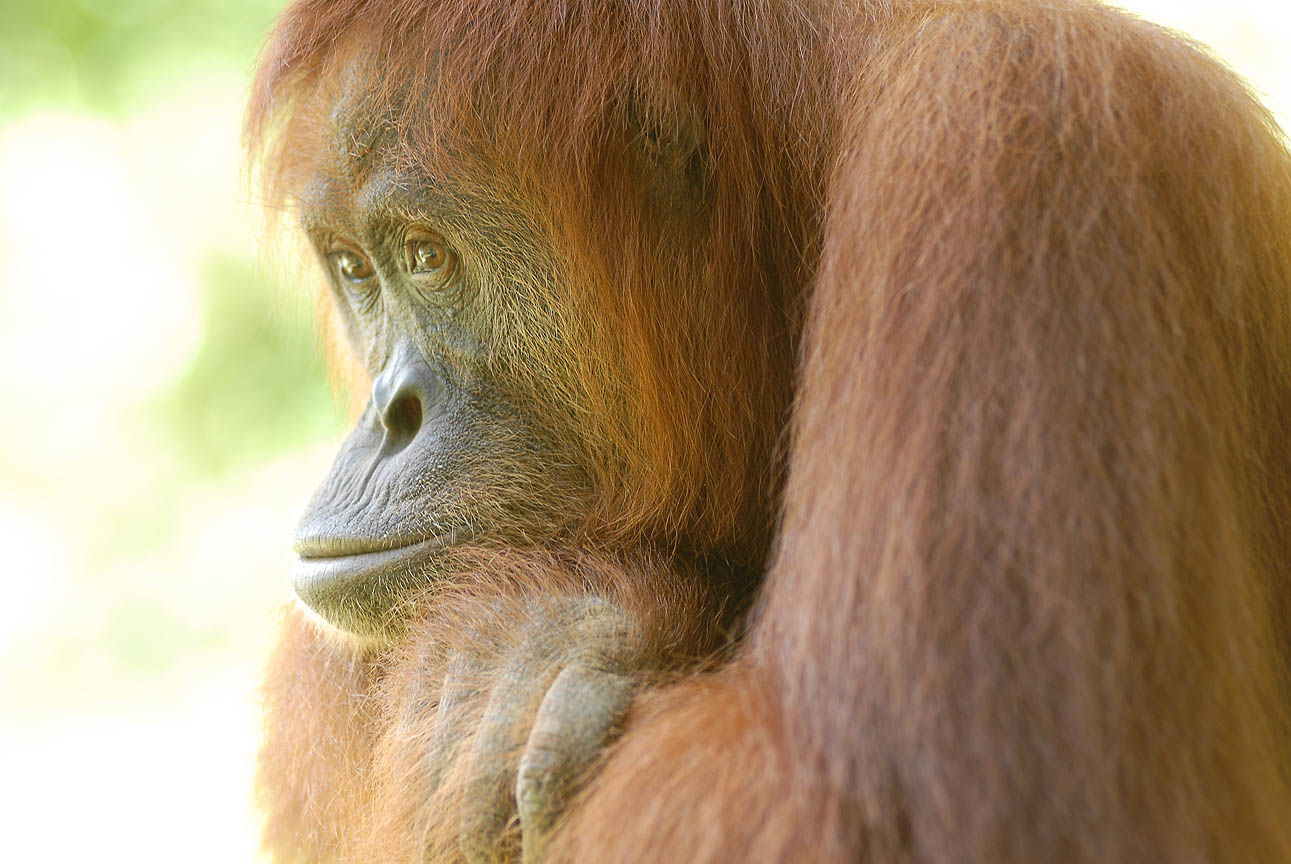The social justice movement tackles issues such as poverty, exclusion and inequality based on gender, race, age, religion, culture or disability. It is also a core principle of rainforest and biodiversity conservation.

Permaculture demonstration plot, Kluet
When one thinks about conservation, words like ecosystems, biodiversity, water, forests or species come to mind. But long term conservation is impossible without taking into account and involving indigenous people and local communities, usually among the most vulnerable and poor. While local communities may be involved in deforestation, forest degradation or wildlife trafficking and hunting, often because they have no other livelihoods options, they are also the first victims of ecological destruction and associated environmental disasters.

Women farmers training for organic fertilizer production, Kluet
That is why the Sumatran Orangutan Society and its partners are associating forests and orangutan conservation with sustainable economic development and social justice. For example our CARE (Community, Agroforestry, Restoration and Education) and permaculture projects are aiming to transform local community members into stewards of the forest while directly improving their income and livelihoods. We always strive to promote gender equality, engagement of youth and disadvantaged people, as their inclusion in the economic activities is usually a first step towards better participation in decision making processes. Numerous reports have underlined the positive impacts of women and youth inclusion when it comes to sustainable resource management and forest/biodiversity conservation.
Last but not least, our campaigns against conflict palm oil in the Leuser Ecosystem and, more broadly speaking, against companies that are not respecting environmental and labour laws, are benefitting orangutans and their habitat, but also the most vulnerable local community members. Indeed these latter are more than often the victims of large scale and short sighted agriculture expansion: they lose their land, access to what the forest was providing for free (timber and non-timber forest products, as well as ecosystem services) and get exposed to natural disasters, water and soil contamination and rain pattern disruption.
Protecting and restoring rainforests is vital for both biodiversity and human communities to thrive. By supporting our work, you can help us build a brighter future for Sumatra’s orangutans, forests and people.
